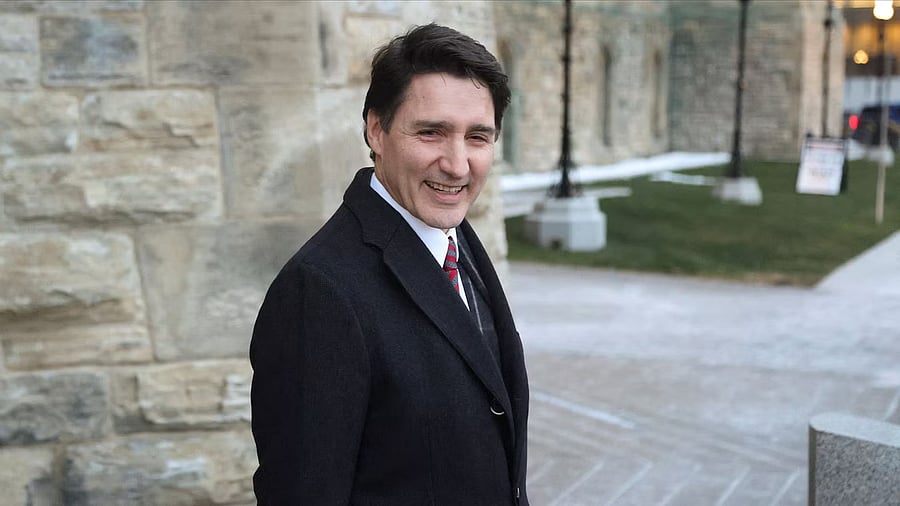
Justin Trudeau
Credit: Reuters photo
New Delhi: If Pierre Trudeau is ever remembered in New Delhi, it will be most probably because the 15th Prime Minister of Canada had in 1982 turned down India’s request to extradite Khalistani Babbar Khalsa International’s leader Talwinder Singh Parmer and thus, ended up inadvertently allowing him to mastermind the bombing of the Air India aircraft Emperor Kanishka three years later, killing all 329 on board.
Pierre’s eldest son Justin, who is now set to resign as the 23rd prime minister of Canada, just proved to be a chip off the old block, at least when it comes to turning a blind eye to the continuing and increasing activities of the Khalistani Sikh separatists in the North American country and growing clamour of the secessionists against India.
Justin has announced that he will step down from the helm of the Liberal Party and stay on as Prime Minister only until the selection of a new leader by the ruling party ahead of general elections due in late October. His plummeting approval ratings, dissent within the ruling party and the surge in the popularity of the opposition Conservative Party prompted him to announce his resignation even as Canada is bracing for a trade war with the US after Donald Trump’s return to the White House on January 20.
The wrecked Canada-India relations will remain one of his legacies.
Junior Trudeau led the Liberal Party to a decisive victory in Canada’s federal elections and took over as the Prime Minister on November 4, 2015. He succeeded the Conservative Party’s Stephen Harper, who had just a few months back hosted Prime Minister Narendra Modi in Ottawa and joined him in promising "new vigour" in India-Canada bilateral relations. Modi, however, called Trudeau, and had congratulated him and invited him to visit India. New Delhi was upset when he appeared at a religious event in Toronto where Khalistani flags were waved and posters hailing slain extremist leader Jarnail Singh Bhindranwale were displayed.
Trudeau’s first visit to New Delhi as the Prime Minister in February 2018 was overshadowed by the perception that Ottawa had done very little to address India’s concerns over continued activities by radical pro-Khalistani elements among the Sikhs in Canada. The invitation to Jaspal Atwal, a convicted assassin and a former activist of the outlawed International Sikh Youth Federation, to a reception hosted by Ottawa's envoy to New Delhi during the visit irked India and triggered a diplomatic spat.
In December 2020, Trudeau again irked New Delhi by expressing concern over the agitation by the farmers against the Modi government’s new agricultural laws.
His government in Ottawa turned down New Delhi’s as many as 26 requests to extradite fugitive Khalistani Sikh terrorists and other criminals from Canada to India, mostly invoking the freedom of speech and democratic rights to protests.
In September 2023, he accused the Government of India of orchestrating the murder of Khalistani Sikh extremist Hardeep Singh Nijjar in Canada, triggering a war of words between New Delhi and Ottawa. India in October 2024 withdrew its envoy Sanjay Kumar Verma and five other diplomats from Canada after they were accused by the police in the North American country of being involved in the murder of Nijjar. New Delhi also retaliated by expelling six diplomats of Canada from India.
As Ottawa awaits Justin Trudeau’s successor, India hopes that the new leader of Canada will care more about bringing bilateral relations back on track than about nurturing a vote bank for electoral gains.
